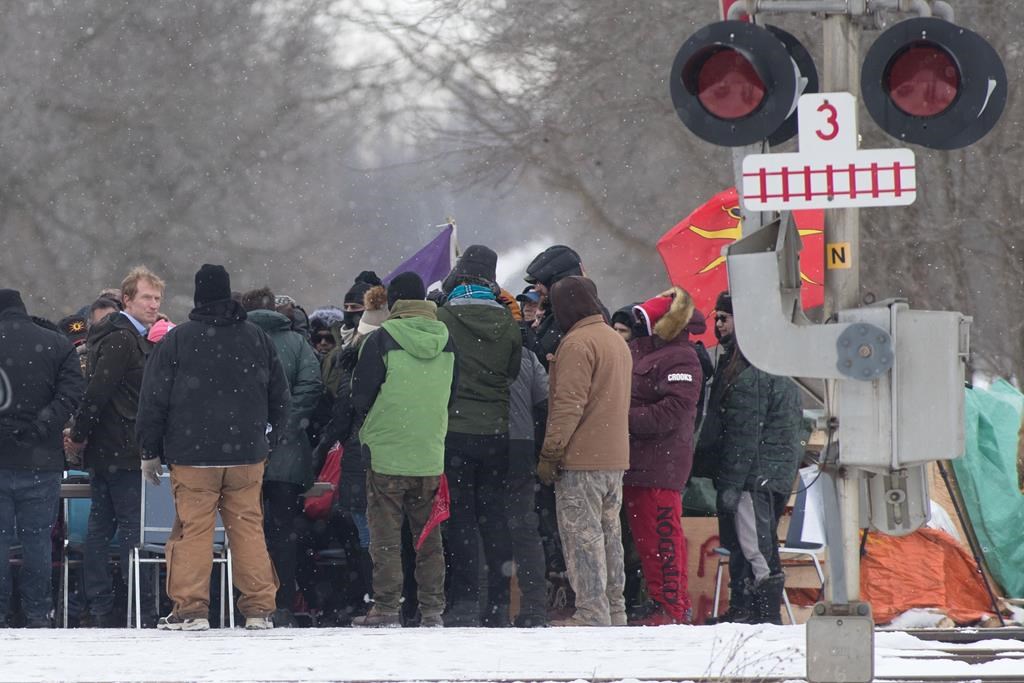Ongoing protests in support of pipeline opposition on a northern British Columbia First Nation could start to have a significant impact on the pocketbooks of Manitobans, .according to one expert.

Dozens of rail line blockades across Canada have effectively shuttered Canadian National Railway service, stranding passengers and freight, which are causing a real-life train-wreck effect, and every waiting day is costing Manitoba farmers money, says University of Manitoba economics professor Fletcher Baragar.
As a new growing season is set to begin, producers are looking to empty elevators and silos, but there is nowhere for the grain to go.
It’s another tough blow for an industry that was already affected this season by the CN strike, but it’s hardly the only one.
Baragar adds the construction industry is another large sector that could face a slowdown if the protests continue.

“We need wood and steel girders, which are brought in by rail. If this continues any longer, existing stocks will be depleted and we could see some significant spinoffs.”
Those spinoffs could mean the loss of jobs due to a drop in production, either permanently or in the form of temporary layoffs.
The union representing CN’s 16,000 employees, Teamsters Canada, said on Friday up to 6,000 could face layoffs.
Baragar says many people are calling on Manitoba’s huge trucking industry to pick up the slack, but they work together as much as they compete against each other.
“On a per-capita basis, we’re a leading province in terms of trucking activity, but that’s dependent on the rails bringing in the containers and bringing out the old ones,” he says.
“They (rails) are the arteries the economy relies heavily on, considering the vast geographic distances in Canada, as well as how most goods in the country lend themselves to container transport. Then they’re loaded on to trucks and distributed regionally.”
A meeting between Indigenous protesters and the federal Indigenous Services minister was scheduled Saturday to seek a solution to the blockades.
Members of the Mohawk First Nation agreed to meet Marc Miller at the CN rail crossing near Belleville, Ont., which has been blocked for days.
Speaking to media on Saturday, Miller said the situation is “very tense” and “very volatile,” but that the meeting offered a chance to have a “real discussion.”









Comments